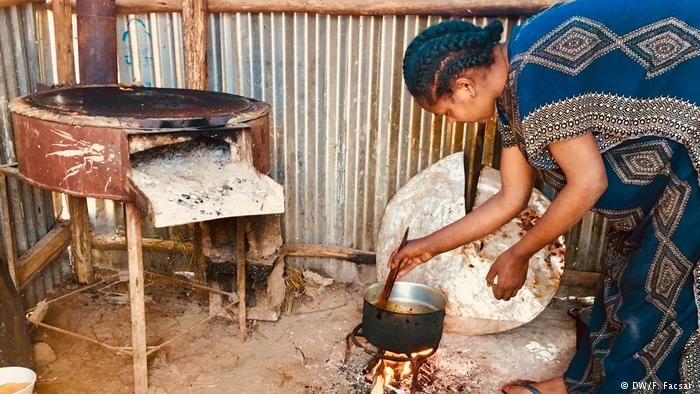A mother’s dilemma
Nearly 1.2 million people in Ethiopia are infected with the deadly Human Immunodeficiency Virus, also known as HIV. Women and young girls are particularly under threat because of social, political and economic discrimination. Women Talk Online reader Anne Marie Hankins stumbled across this piece of information when her co-passenger on a flight spoke about the plight of mothers in the African country.
Last summer I was on a plane flying to Chicago for a leadership conference and struck up a conversation with the girl next to me. She was returning home from doing medical work in Ethiopia and proceeded to tell me several stories from her trip, but one in particular stuck with me. During her time working in different Ethiopian hospitals, she had encountered several pregnant women who were HIV positive. In order to avoid transferring the disease to the baby, the doctors performed C-sections on these women when they gave birth.
However, babies can also contract HIV through breastfeeding. According to Avert.org, “Breastfeeding for two or more years can double the risk of the baby becoming infected to around 40 percent.” Many of these women live in poverty and cannot afford to buy baby formula. She told me that doctors advised HIV positive mothers to breast-feed their babies because malnutrition would kill them faster than AIDS.
I was dumbfounded.
These mothers have two options. Let their baby starve to death or possibly pass along a life-threatening disease. Imagine being a mother who is forced to make a terrible choice for her baby simply because she cannot afford necessary supplies. That is these women’s reality. Obviously, the answer seems simple: provide baby formula for these mothers. However, even this does not always solve the problem.
According to the book, Half the Sky, written by Nicholas D. Kristof and Sheryl Wudunn, some hospitals have tried giving powdered baby formula to mothers infected with HIV only to find the formula tossed in the bushes down the road. These women fear returning to their homes and the knowledge of their infection becoming public. So they breastfeed their child instead and pass along the disease, which only adds to the spread of AIDS and continuation of this issue.
There is a stigma around AIDS which makes these women fearful, even though they need to protect their children. Solving the problem of HIV-infected babies starts with promoting education and acceptance of those who are suffering with AIDS.
We are helping sending a team to Ethiopia to help fight the AIDS epidemic. Find out how you can help: http://t.co/FSKmXNGt0Q
— ResWilliamsburg (@ResWilliamsburg) February 8, 2014
According to the Red Cross, “More adults die from AIDS or HIV related illnesses than any other cause in Ethiopia.” It is imperative to educate women all over the world about their own reproductive health. If women are educated on safe sex practices they can prevent contraction of HIV and other sexually transmitted diseases. Women who are educated and have family planning resources available to them can make decisions about the number of children they want and can afford.
Author: Anne Marie Hankins
Editor: Manasi Gopalakrishnan






